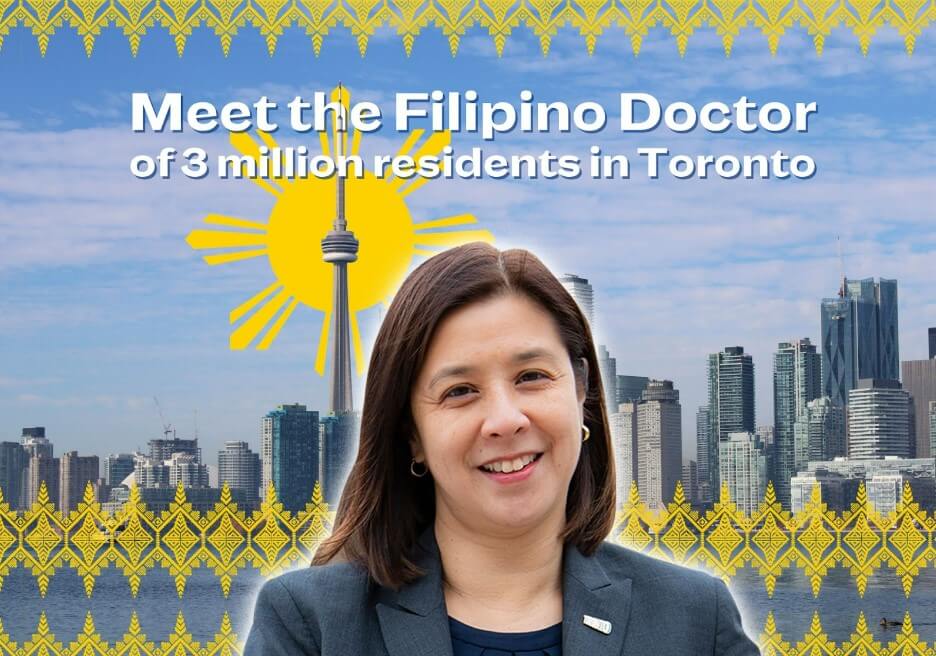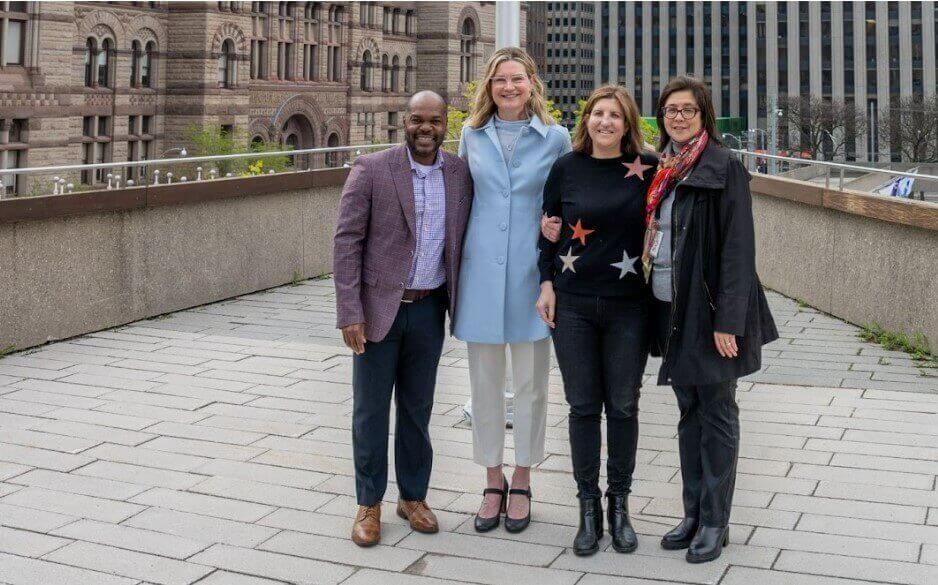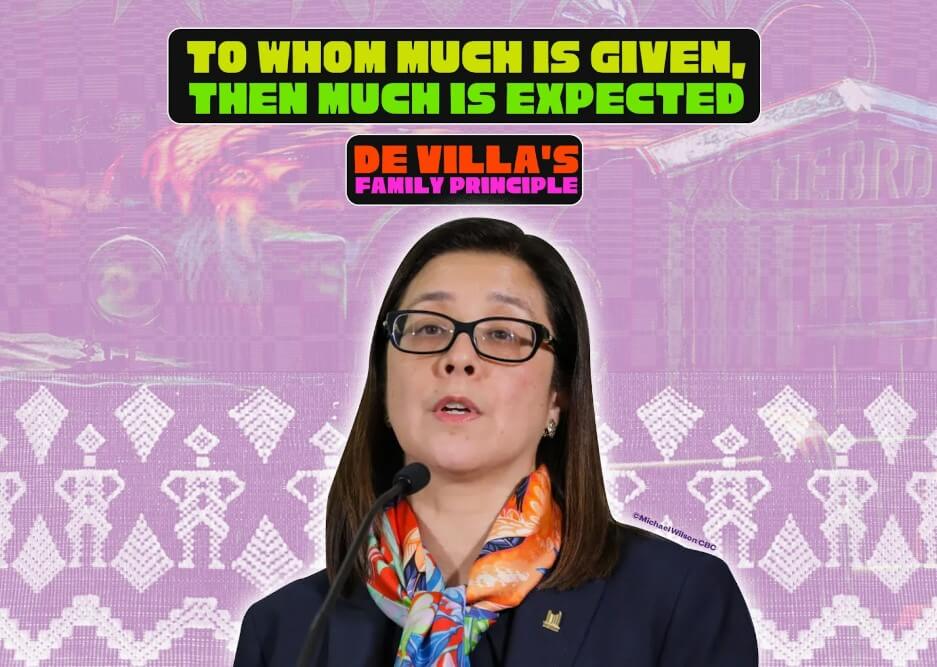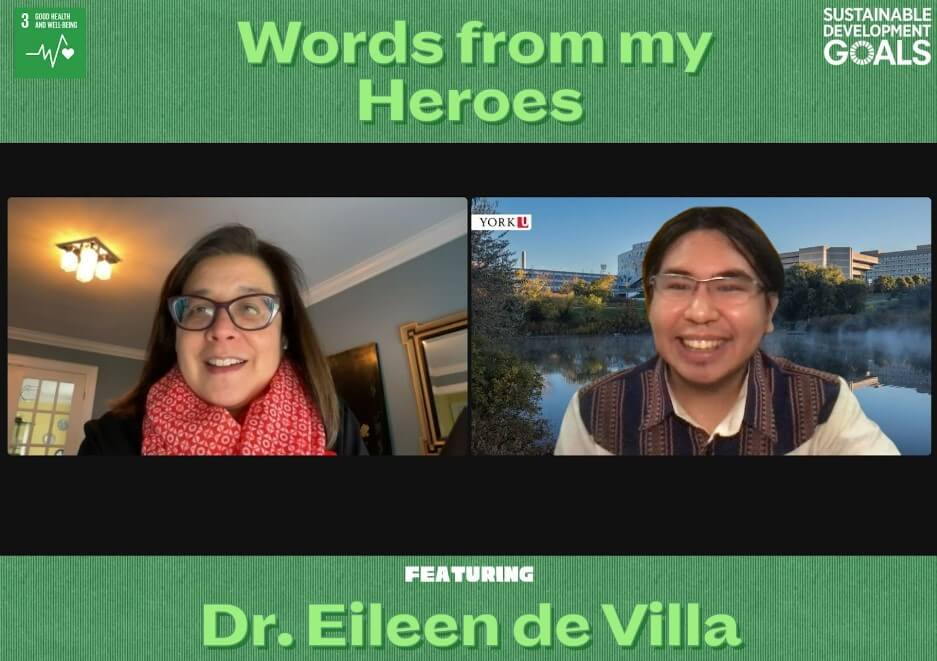Dr. Eileen De Villa’s Excellence: How the People’s Doctor of Toronto Honors Filipino Roots
By: Qjiel Mariano
|
Published on: June 7, 2023

Dr. Eileen de Villa, a proud Filipino making a difference in Toronto, Canada’s Multicultural City. Photo edited by Qjiel Mariano
Fortunate is the Filipino who uses her platforms to bring out the best in others. A bright statement to share as colorful as the scarves she wore in her public appearances. People may know Dr. Eileen De Villa as a loving mother of three. A public health doctor to almost three million residents in Toronto. An Adjunct Professor at the University of Toronto. Maybe even as a friend to Canada’s multicultural city. One thing our Kababayans should know is she is also a proud Filipino!
I had reservations about pursuing a life in Canada to study global health at York University. While it is a multicultural city, I believed a Filipino like me is better to learn in the comforts of Manila, my home. After learning about Canada’s response to the COVID-19 pandemic – I came across Dr Eileen De Villa. It fondly reminded me of Michelle Yeoh’s Oscar acceptance speech earlier this year, “For all the little boys and girls who look like me, watching tonight, this is the beacon of hope and possibilities”.
Knowing that a humble public servant in Toronto was a Filipino, I felt a sense of belonging. While I am uncertain what tomorrow will bring, I owe it to the short conversation I had with Dr. De Villa about understanding global citizenship to nurture the next generation.
We have featured numerous students here at Good News Pilipinas who have received scholarships or admission offers from universities all over the world. We hope this article inspires Filipinos to the fantastic contribution you can make as you navigate life abroad.

Dr. Elieen De Villa poses with a group of doctors in celebration of Doctor’s Day in Toronto. ©Eileen de Villa
De Villa’s humble Filipino roots
De Villa’s parents were both doctors who graduated from the University of the Philippines College of Medicine. Born in Boston and raised in Toronto, Dr. Eileen grew up in an environment where Filipino roots may be celebrated wherever she could be.
She lives by the family saying “to whom much is given, then much is expected” taught to her by her parents, both prominent Filipino figures in the Filipino community of Canada. Her parents dedicated their lives to service and representation in the Filipino community. Just as much as Dr. Eileen does today, “If the entire Filipino community stopped working for a single day in healthcare, then we might paralyze the entire system,” she reflects as she honors all essential workers in healthcare.
With almost a population of 1,000,000, Filipinos make a significant contribution to Canada’s healthcare infrastructure. Most Filipinos would recognize doctors, nurses, or physiotherapists, but this also extends to janitorial services and custodial work. “Filipinos have entered Canada through the Live-In Caregiver Program and I believe caregivers do not get the respect that is due to them,” she added. Immigration is a complex process as we have seen in our recent story with immigrant turned immigrant rights defender, Gheneva Aleta. Both share the same views on uplifting the notions of caregiving in Canada.
READ MORE: From Filipino Immigrant to Immigrant Rights Defender: How Gheneva Brought Filipino Values to Canada
Dr. Eileen fondly recalls the time she was doing a practicum for her studies that led her back to the Philippines, “it was an opportunity for me to spend an extended amount of time in the Philippines with my grandmother who was alive at the time.” It was a great way for her to stay longer with her family while a precursor to what is now an excellent career in public health.
Married to Dr. Richard Choi, a Cardiologist in Toronto, they have three sons who are enthusiastic to learn about their Filipino heritage. “We try our best to go to the Philippines every other year and our family has been to the Philippines six times now,” she shared proudly. Dr. De Villa is blessed with an incredible family in the Philippines and this allows for a deeper connection to what it means to be a Filipino for her boys.

Dr. Eileen De Villa in action as she calmly guided Toronto’s COVID-19 response. ©Michael Wilson/CBC; edited by Qjiel Mariano
What the ideal public health response should be like
You may have attended some of her lectures and you will always hear Dr. De Villa echo these three main objectives of public health: improve the health status of the population, reduce the health inequities in the population, prepare for and respond effectively to public health outbreaks and emergencies. In achieving these, you will actualize reform which is to sustain healthcare.
The ultimate goal is to see fewer patients who are ill and Dr. De Villa shares success stories of Toronto. These public health milestones include how they reduced the incidence of smoking or created more sound policies for routine childhood vaccination. “The most powerful lever we could use is policy. It may be a difficult lever to use, but it is very effective,” she shares.
Being a doctor for three million residents in Toronto is no easy feat and she stood as a beacon of hope in the anxious onset of the COVID-19 pandemic. It was her calm demeanor that influenced decision-makers to make equitable decisions. “ I cannot talk to all three million individually but effectively there is a substitute decision maker and that’s the politicians in question in my case it’s the Board of Health that I report to which is comprised of both politicians and citizen members.”
Dr. Eileen likens the pandemic response of Canada’s largest local public health agency to the usual doctor-patient relationship. “My role is not to be a politician my role is to be a neutral nonpartisan advisor using scientific data and local data to inform my advice to the politicians who are the representatives of the citizens of Toronto” At the end of the day, her role as a public health doctor is to advise residents and instill a sense of urgency to act towards a common goal for the population.
Understanding these challenges of the pandemic and other global health issues coincide with the achievement of the Sustainable Development Goals (SDGs). “Public health is about the conditions in which one lives works, and plays – and when you look at the sustainable development goals they are all about the conditions of humanity” Dr. Eileen shares. There should be a conduit between human health and human flourishing that is very evident when the SDGs are realized.

Good News Pilipinas columnist Qjiel’s interview with Dr. Eilieen de Villa ©Qjiel Mariano
Her message to Filipinos
Dr. Eileen de Villa believes she is still deeply connected to her Filipino heritage. “It’s something that I celebrate and I’m very proud to be a Filipino. Your identity, your values, and your heritage you cannot take those away,” she shares proudly.
A word of advice from the People’s Doctor is to use your platforms for other people. “The most straightforward way to participate in Public Health is to vote, be it in local, state, or national elections,” she shares as a call to action.
We recall the values of her family that she shares with her own family today. “to whom much is given, then much is expected.” She attributes her success to the environment she was raised in. A loving, supportive, and deeply rooted heritage. “We owe it to the people who may never get the opportunities because of how systems were built,” she reflected on her family legacy. It is all about nurturing the next generation and equitably sharing resources with those who need it the most.
“What Filipinos bring to a community is there is a real sense of family – a real sense of fun,” she shares about the uniqueness of Filipinos she encountered throughout her life. She reminds all our Kababayans that we should continually serve Filipinos regardless of where we call home. Be it in Canada or the Philippines, the Filipino is worth celebrating every single day.
READ MORE from Qjiel Mariano here:
- Rwanda forever! A Filipino’s purposeful visit to the Land of Thousand Hills
- A bright future for Philippine Studies at York University
Qjiel Mariano is the newest Good News Pilipinas columnist. The York University Global Health student was selected to join the Clinton Global Initiative Class, awarded the George H.W. Bush Inspiration Honors, and named Education Hero by Youth Service America.
Good News Pilipinas is a Lasallian Scholarum Awardee. TELL US your good news story tips by messaging GoodNewsPilipinas.com on Facebook, Twitter, or Instagram, or e-mailing editor@goodnewspilipinas-com-256437.hostingersite.com